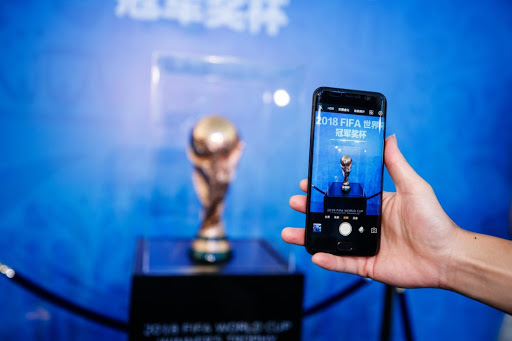The four-day protest has been arranged in response to the online abuse and hate faced by the players across different social media platforms.
Both FIFA and UEFA have joined the social media boycott started by the clubs, players and various governing organisations of English football.
The boycott, which started late on Friday, is expected to continue until Monday night. Apart from the different footballing bodies, English cricket and rugby clubs, the British Lawn Tennis Association, Formula 1 drivers and the broadcasters of these sports have joined the social media silence while pledging allegiance to combat the frequent racial abuses faced by the athletes.
“FIFA supports the initiative from English football to call out discriminatory and other offensive abuse on social media,”
“This has no place in football or society more generally, and we strongly condemn it.”
“We believe that authorities and social media companies should take real and effective steps to put an end to these abhorrent practices because it’s getting worse all the time, and something needs to be done — and done quickly — to put a stop to it.”
the highest governing body of football declared through a statement released on Friday.
Aleksander Čeferin, the UEFA president in his speech to the affiliated members of the association, urged people to launch formal complaints on any “unacceptable tweets or messages.”
“We’ve had enough of these cowards who hide behind their anonymity to spew out their noxious ideologies,”
Ceferin stated.
While seven-time Formula One champion Lewis Hamilton, who also happens to be the only Black racer in F1, welcomed the boycott and asked social media companies to take stern action against such incidents.
“I’m really proud to hear that there are so many organizations getting involved. I’m not sure why Formula One is not a part of that,”
“I do believe that social media companies need to do more. There’s algorithms, there’s things they’re able to see, they’re able to take steps to help and create more of an anti-racist society. That’s what we’ve really got to be pushing towards.”
Hamilton said before this weekend’s Portuguese Grand Prix.
The campaign against online abuse and threats generated some momentum and turned into a full-scale protest after Swansea, Rangers and Birmingham all shut down their social media channel for several days earlier in April – in retaliation to the harassment faced by their players throughout the season.
A couple of years ago, a large number of footballers in the UK participated in the #Enough campaign, a similar social media boycott programme for 24 hours. But the scenario hasn’t changed over the years as players across various sports still continue to be subjected to discrimination and hate speech, with some clubs even contacting the police over the level of aggression.
Crystal Palace winger Andros Townsend told BBC that players were eventually “starting to fight back” and that the boycott would “send a warning to these companies that if you don’t start regulating your platforms, it’s going to be an indefinite blackout”.
While Watford forward and captain Troy Deeney lauded the move and added that the social media boycott was a “huge step”.
“For a long time now, we’ve all been talking about the impact of social media on the younger generation, as well as mental health,”
“I think the huge part about this is it’s only four days. It could give people a perspective of what life could be like without a huge amount of sporting stars on [social media].”
he said.
According to multiple publications, the English football officials have repeatedly urged the British government to enact strict laws for the social media giants to be more accountable for the content shared on their platforms. The UK government, in response, threatened the tech companies with “fines” amounting to over “billions of pounds” should they fail to tackle online abuses.
Meanwhile, Facebook, which also owns Instagram, announced a tool for users to automatically filter out hate speech last week. Whereas Twitter made a lengthy statement in February, citing that they were “resolute in our commitment to ensure the football conversation on our service is safe for fans, players and everyone involved in the game”.
The micro-blogging site also claims to have removed over 7,000 football-related tweets that violated its policies.


